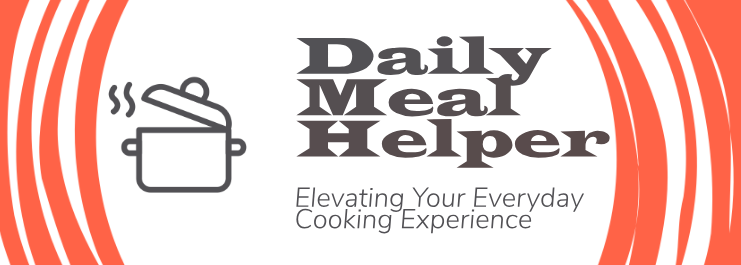- You are here:
- Home »
- Food Substitutes
- » Best Substitutes For Coconut Oil
Best Substitutes For Coconut Oil

Coconut oil has become an incredibly popular ingredient in cooking and baking due to its versatility, health benefits, and unique flavor. However, if you find yourself without coconut oil or simply prefer to explore other options, there are plenty of excellent substitutes available. In this article, we will discuss the best substitutes for coconut oil, their uses, and how to choose the right one.
Key Takeaways
- Coconut oil is a popular cooking and baking ingredient known for its versatility and unique flavor.
- If you don’t have coconut oil or want to try something different, there are several excellent substitutes.
- The best substitutes for coconut oil include olive oil, avocado oil, butter, ghee, and vegetable shortening.
- Consider the smoke point, flavor, and texture of the substitute when choosing the right one for your recipe.
- Substitutes can be used in various cooking techniques, such as sautéing, frying, baking, and even in beauty routines.
Why You Need A Substitute For Coconut Oil
While coconut oil offers a distinct flavor and aroma, there are some scenarios where a substitute may be necessary or desired. Here are a few reasons why you might need a substitute for coconut oil:
1. Allergy or dietary restrictions: Coconut oil is derived from coconuts, and some individuals may have allergies or dietary restrictions that prevent them from consuming it. In such cases, finding a suitable substitute becomes essential.
2. Availability: Coconut oil may not always be readily available in your pantry or local grocery store. Having an alternative on hand can save you from making an extra trip or interruption in your cooking or baking plans.
3. Flavor variation: While coconut oil is loved for its tropical flavor, you may want to experiment with different tastes in your recipes. Substituting coconut oil with another oil or fat can lend a new and exciting flavor dimension to your dish.
4. Personal preference: Everyone has unique taste preferences. If you simply don’t enjoy the taste of coconut oil or want to try something new, opting for a substitute can offer a different culinary experience.
Types Of Substitutes For Coconut Oil

When looking for a substitute for coconut oil, it is important to consider the purpose and characteristics of the oil. Here are some of the most popular substitutes and their qualities:
1. Olive Oil: Olive oil is a versatile substitute for coconut oil, offering a fruity and rich flavor. It is high in monounsaturated fats, which are considered heart-healthy. Extra virgin olive oil is best for drizzling and dressings, while regular olive oil is suitable for sautéing, frying, and baking.
2. Avocado Oil: Derived from the flesh of avocados, this oil provides a smooth, buttery texture and a mild, nutty flavor. It has a high smoke point, making it suitable for cooking at higher temperatures. Avocado oil is a great substitute for coconut oil in both cooking and baking.
3. Butter: Butter is a classic and widely available substitute for coconut oil. It adds richness, flavor, and a creamy texture to dishes. However, keep in mind that butter has a lower smoke point than coconut oil, so it may not be suitable for high-heat cooking methods.
4. Ghee: Ghee is clarified butter, which means it has been simmered to remove the milk solids, resulting in a buttery and nutty flavor. It has a higher smoke point than regular butter and provides richness to dishes without the residual milk solids. Ghee can be an excellent substitute for coconut oil in most recipes.
5. Vegetable Shortening: Made from hydrogenated vegetable oils, vegetable shortening is a solid fat that can replace coconut oil in baking recipes. It provides a similar texture and richness but lacks the distinct flavor of coconut oil. Keep in mind that some vegetable shortenings may contain trans fats, so check the label for healthier options.
Best Substitutes For Coconut Oil
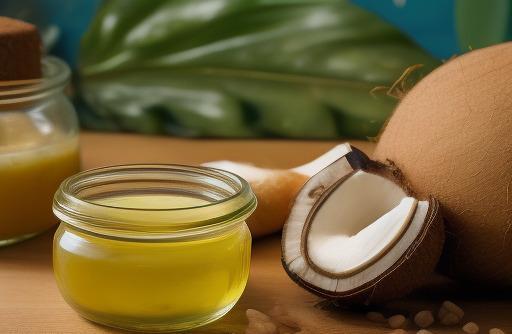
Now, let’s delve deeper into each of the best substitutes for coconut oil and explore their uses and qualities.
1. Olive Oil
Olive oil is a widely used cooking oil known for its health benefits and delicious flavor. It comes in different varieties, such as extra virgin, virgin, and regular olive oil, each with its own distinct qualities.
-
Extra Virgin Olive Oil: This is the highest quality and least processed olive oil, derived from the first pressing of the olives. It has a robust flavor, vibrant color, and fruity aroma, making it perfect for drizzling over salads, bread, and vegetables. Extra virgin olive oil is also a great substitute for coconut oil in raw or low-heat recipes.
-
Virgin Olive Oil: Slightly less flavorful and aromatic than extra virgin olive oil, virgin olive oil is also suitable for drizzling and dressings. It has a slightly higher smoke point, making it ideal for sautéing and light cooking.
-
Regular Olive Oil: With a milder taste and higher smoke point than extra virgin and virgin olive oil, regular olive oil is suitable for everyday cooking, including sautéing, frying, and baking.
When using olive oil as a substitute for coconut oil, keep in mind that it has a distinct flavor that may alter the taste of your dish. While this can be desirable in some recipes, it might not work well in all dishes, so consider the purpose and flavor profile of your recipe before making the substitution.
Pro tip:
Olive oil is an excellent substitute for coconut oil in salad dressings. Its fruity flavor and rich texture complement a variety of ingredients. Combine extra virgin olive oil with balsamic vinegar, Dijon mustard, honey, and herbs for a refreshing and flavorful dressing.
2. Avocado Oil
Avocado oil is a healthy and flavorful substitute for coconut oil, derived from the flesh of avocados. It has gained popularity for its numerous health benefits and versatility in cooking and baking.
-
Avocado oil has a mild, buttery flavor with a subtle nuttiness. It has a high smoke point, which means it can be heated to higher temperatures without breaking down and becoming rancid.
-
Avocado oil is an excellent alternative for coconut oil in both savory and sweet recipes. Its creamy texture and mild taste make it suitable for baking, roasting, sautéing, and even making homemade mayonnaise.
-
This oil is rich in monounsaturated fats, which are known for their heart-healthy properties. It also contains vitamins E and K, which have antioxidant properties.
When using avocado oil as a substitute for coconut oil, keep in mind that its flavor is less pronounced than coconut oil. However, it can still add a nutty richness to your dishes.
Pro tip:
Avocado oil is perfect for pan-frying or stir-frying vegetables. Its high smoke point and buttery flavor work wonderfully with the natural sweetness of vegetables. Sauté your favorite vegetables in avocado oil with garlic, salt, and pepper for a delicious and nutritious side dish.
3. Butter
Butter is a classic and widely accessible substitute for coconut oil, often used in baking, cooking, and spreading. It provides richness, flavor, and a creamy texture to dishes.
-
Butter has a distinct flavor that adds warmth and richness to recipes. It works well in baked goods, such as cookies, cakes, and pastries, providing a tender crumb and a delicious taste.
-
When using butter as a substitute for coconut oil, keep in mind that it has a lower smoke point. This means it is not ideal for high-heat cooking methods such as deep frying. However, it can be used for sautéing, pan-frying, and baking at moderate temperatures.
-
Butter is high in saturated fats, so it should be enjoyed in moderation as part of a balanced diet.
Pro tip:
When using butter as a substitute for coconut oil in baking, make sure to increase the amount of butter slightly to compensate for the difference in moisture content. To enhance the flavor, you can also add a small amount of coconut extract to mimic the aroma and taste of coconut oil.
4. Ghee
Ghee, also known as clarified butter, is another excellent substitute for coconut oil. It is commonly used in Indian cuisine and offers a rich and nutty flavor.
-
Ghee has a higher smoke point than regular butter due to the removal of milk solids during the clarification process. This makes it suitable for high-heat cooking methods such as frying, sautéing, and roasting.
-
The flavor of ghee is buttery and nutty, making it a wonderful addition to both savory and sweet dishes. It can be used as a spread, cooking fat, or as a flavor enhancer in sauces, curries, and baked goods.
-
Ghee has a longer shelf life than regular butter since the milk solids have been removed. It can be stored at room temperature for months without spoiling.
Pro tip:
If you’re looking for a vegan substitute for ghee, consider using coconut oil combined with a pinch of turmeric powder. Turmeric adds a similar golden color and earthy flavor, resembling the qualities of ghee.
5. Vegetable Shortening
Vegetable shortening is a solid fat made from hydrogenated vegetable oils. It can be a suitable substitute for coconut oil in baking recipes where a solid fat is required.
-
Vegetable shortening has a neutral taste, which means it won’t impart any distinct flavor to your baked goods. This can be useful if you don’t want the taste of coconut in your final product.
-
When using vegetable shortening, it is important to check the label for healthier options. Some vegetable shortenings may contain hydrogenated oils and trans fats, which are considered unhealthy. Look for brands that use non-hydrogenated oils or opt for vegetable shortening alternatives made with natural, plant-based ingredients.
-
Vegetable shortening is great for making pie crusts, cookies, and other baked goods that require a tender and flaky texture.
Choosing The Right Substitute For Coconut Oil
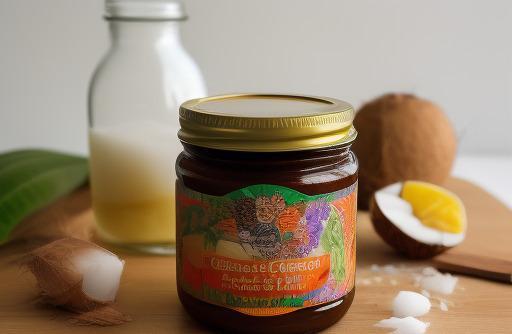
When choosing a substitute for coconut oil, consider the following factors:
1. Smoke Point: The smoke point of an oil or fat is the temperature at which it begins to smoke and break down, resulting in a burnt taste and the release of harmful compounds. For high-heat cooking methods like frying, choose a substitute with a higher smoke point, such as avocado oil or ghee. For lower-heat cooking or baking, olive oil or butter can be suitable options.
2. Flavor: Consider the flavor profile of your recipe and how the substitute will complement or alter it. Olive oil and avocado oil add their own unique flavors, while butter and ghee provide richness and depth. Vegetable shortening, on the other hand, is known for its neutral taste.
3. Texture: Some substitutes may have a different texture compared to coconut oil. For example, using butter instead of coconut oil may result in a denser and richer final product. Consider the desired texture of your recipe when choosing a substitute.
4. Health Considerations: If health is a concern, consider the nutritional profile of the substitute. Olive oil and avocado oil are high in monounsaturated fats, which are considered heart-healthy. Butter and ghee contain saturated fats and should be enjoyed in moderation. Choose vegetable shortening options that are made with healthier oils and avoid those containing trans fats.
Cooking With Substitutes For Coconut Oil
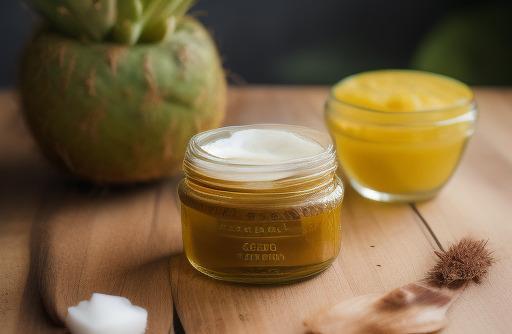
Now that you have a variety of substitutes for coconut oil at your disposal, it’s time to explore different cooking techniques where these substitutes can be effectively used.
1. Sautéing and Stir-Frying: Olive oil, avocado oil, butter, and ghee are all suitable substitutes for coconut oil when sautéing or stir-frying vegetables, meat, or seafood. They add flavor, richness, and help prevent sticking to the pan.
2. Baking: For most baking recipes, butter, ghee, and vegetable shortening can be used as substitutes for coconut oil. Keep in mind that the flavor and texture of the final product may be slightly different.
3. Roasting: Avocado oil and olive oil are excellent substitutes for coconut oil when roasting vegetables or meats. They add a delicious flavor and help achieve a crispy and golden texture.
4. Spreading and Dressing: Butter, ghee, and even avocado oil can be used as substitutes for coconut oil when spreading on bread or as a base for dressings. They add richness and enhance the taste of sandwiches, toasts, and salads.
5. Beauty Routines: Coconut oil is often used in beauty routines as a natural moisturizer, hair conditioner, and makeup remover. Olive oil, avocado oil, and even butter can be used as substitutes in these beauty applications.
Remember that these substitutes may have distinct flavors and characteristics, so it’s always good to experiment and adjust the quantities according to your taste preferences and the recipe requirements.
Recipes Using Substitutes For Coconut Oil

Here are a few recipes that showcase the versatility of the substitutes for coconut oil:
1. Roasted Garlic Butter Mashed Potatoes
Ingredients:
- 4 large potatoes
- 4 tablespoons butter (substitute for coconut oil)
- 4 cloves roasted garlic
- Salt and pepper to taste
- ½ cup milk
Instructions:
- Peel and chop potatoes into small cubes. Boil until tender.
- Drain the potatoes and return them to the pot.
- Mash the potatoes using a potato masher or a fork.
- Add butter (substitute) and roasted garlic cloves to the mashed potatoes.
- Mix well until combined, adding milk gradually to achieve desired consistency.
- Season with salt and pepper to taste.
- Serve hot as a side dish.
2. Lemon Olive Oil Cake
Ingredients:
- 1 ½ cups all-purpose flour
- 2 teaspoons baking powder
- ½ teaspoon salt
- ½ cup olive oil (substitute for coconut oil)
- 1 cup granulated sugar
- 3 large eggs
- ½ cup milk
- 2 tablespoons lemon zest
- ¼ cup lemon juice
- Powdered sugar for dusting
Instructions:
- Preheat the oven to 350°F (175°C). Grease and flour a 9-inch cake pan.
- In a medium bowl, whisk together the flour, baking powder, and salt.
- In a separate bowl, whisk together the olive oil (substitute), granulated sugar, and eggs until well combined.
- Add the flour mixture to the olive oil mixture in three parts, alternating with the milk.
- Stir in the lemon zest and lemon juice until the batter is smooth.
- Pour the batter into the prepared cake pan and smooth the top.
- Bake for 30-35 minutes, or until a toothpick inserted into the center of the cake comes out clean.
- Allow the cake to cool in the pan for 10 minutes before transferring it to a wire rack to cool completely.
- Dust with powdered sugar before serving.
3. Stir-Fried Vegetable Noodles
Ingredients:
- 8 ounces rice noodles or soba noodles
- 2 tablespoons avocado oil (substitute for coconut oil)
- 2 cloves garlic, minced
- 1 small onion, thinly sliced
- 2 carrots, julienned
- 1 bell pepper, sliced
- 1 cup broccoli florets
- ½ cup snap peas, halved
- 2 tablespoons soy sauce
- 1 tablespoon sesame oil
- Red pepper flakes (optional)
- Chopped cilantro or green onions for garnish
Instructions:
- Cook the noodles according to the package instructions. Drain and set aside.
- Heat the avocado oil (substitute) in a large skillet or wok over medium heat.
- Add the minced garlic and thinly sliced onion. Sauté for 2-3 minutes until fragrant and slightly softened.
- Add the julienned carrots, sliced bell pepper, broccoli florets, and snap peas. Stir-fry for an additional 5 minutes until the vegetables are crisp-tender.
- In a small bowl, whisk together the soy sauce, sesame oil, and red pepper flakes (optional). Pour the sauce over the stir-fried vegetables and noodles.
- Add the cooked noodles to the skillet or wok and toss to coat everything evenly with the sauce.
- Sprinkle with chopped cilantro or green onions for garnish.
- Serve hot as a main dish or side dish.
Feel free to customize these recipes by incorporating your favorite vegetables, spices, or proteins. These recipes demonstrate how versatile the substitutes for coconut oil can be in various culinary applications.
Storage And Shelf Life Of Substitutes
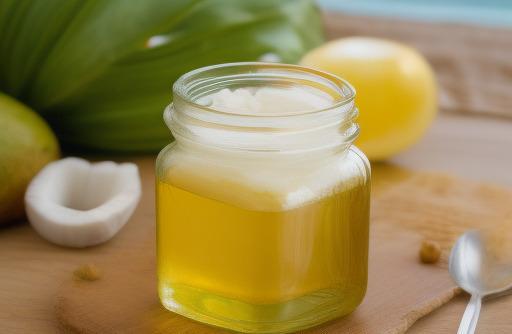
The storage and shelf life of substitutes for coconut oil vary depending on the specific ingredient. Here are some general guidelines:
-
Olive Oil: Store olive oil in a cool, dark place, away from direct sunlight. Properly stored, it can last up to two years. However, its flavor and quality will gradually deteriorate over time.
-
Avocado Oil: Like olive oil, avocado oil should be stored in a cool, dark place. It can last up to one year when properly stored.
-
Butter: Store butter in the refrigerator to prolong its shelf life. It can last up to three months in the fridge or up to a year in the freezer.
-
Ghee: Ghee has a longer shelf life than butter due to the removal of milk solids. It can be kept at room temperature for a few months without spoiling.
-
Vegetable Shortening: Vegetable shortening can be stored at room temperature for up to a year. However, it is best to check the expiration date and follow the manufacturer’s recommendations.
Remember to check the storage instructions on the packaging of each substitute to ensure the best quality and taste.
Conclusion
While coconut oil offers unique flavor and health benefits, there are plenty of substitutes available for those who need or prefer alternatives. Olive oil, avocado oil, butter, ghee, and vegetable shortening can be excellent substitutes for coconut oil, depending on the purpose, flavor, and texture desired. Consider the smoking point, flavor, and nutritional profile of each substitute when choosing the right one for your recipe. Don’t be afraid to experiment and explore new possibilities in your cooking and baking adventures.
FAQS
What Are Some Alternatives To Coconut Oil For Cooking?
There are a few healthy options you can use as a substitute for coconut oil in cooking. Olive oil, avocado oil, and ghee are some popular options.
Which Oil Is The Best Substitute For Coconut Oil In Baking?
If you’re looking for a dairy-free substitute for coconut oil in baking, try using vegetable shortening or margarine. For a healthier option, you can use applesauce, mashed bananas, or nut butters.
What Is The Best Substitute For Coconut Oil In Beauty Products?
If you’re looking for a natural alternative to coconut oil in your beauty routine, try using jojoba oil or almond oil. These oils are non-comedogenic and work well as a moisturizer or as a carrier oil for essential oils.
Can You Use Butter As A Substitute For Coconut Oil In Cooking?
Yes, you can use butter as a substitute for coconut oil in cooking. However, butter is high in saturated fat and cholesterol, so it might not be the healthiest option.
Is Avocado Oil A Good Substitute For Coconut Oil?
Yes, avocado oil is an excellent substitute for coconut oil. It has a high smoke point, making it suitable for high-heat cooking. It’s also a good source of healthy monounsaturated fats and vitamin E.
Sources
About the Author Jenny
I'm Jenny, a housewife with an unwavering passion for food. My culinary journey began with my grandmother's kitchen, and it's now a full-fledged food blog. I've turned my love for cooking into a creative outlet, sharing recipes and stories with a global community of fellow food enthusiasts. It's proof that being a housewife can also mean pursuing your passions and savoring life's delectable moments.
